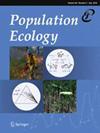由于社会变化而提供的水生生态系统服务:以波罗的海为例
IF 1
4区 环境科学与生态学
Q4 ECOLOGY
引用次数: 10
摘要
本文章由计算机程序翻译,如有差异,请以英文原文为准。
Provision of aquatic ecosystem services as a consequence of societal changes: The case of the Baltic Sea
Aquatic ecosystem services are important for human wellbeing, but they are much less studied than terrestrial ecosystem services. The objectives of this study are to broaden, itemize and exemplify the human-nature interactions in modeling the future provision of aquatic ecosystem services. We include shared socioeconomic and representative concentration pathways, used extensively in climate research, as drivers of change for the future development of the Baltic Sea. Then we use biogeochemical and ecosystem models to demonstrate the future development of exemplary supporting, provisioning and cultural ecosystem services for two distinct combinations of regionally down-scaled global climate and socioeconomic futures. According to the model simulations, the two global futures ( “ Sustainable well-being ” vs. “ Fossil-fuelled development ” ) studied lead to clearly deviating trajectories in the provision of marine ecosystem services. Under the “ Sustainable well-being ” -scenario primary production decreases by 20%, catches of demersal fish increases and the recreation opportunities increase significantly by the end of the ongoing century. Under the “ fossil-fuelled development ” -scenario primary production doubles, fisheries focus on less valued pelagic fish and the recreation possibilities will decrease. Long-term projections of aquatic ecosystem services prepared for alternative global socioeconomic futures can be used by policy makers and managers to adaptively and iteratively adjust mitigation and adaptation effort with plausible future changes in the drivers of water pollution.
求助全文
通过发布文献求助,成功后即可免费获取论文全文。
去求助
来源期刊

Population Ecology
环境科学-生态学
CiteScore
3.90
自引率
11.80%
发文量
41
审稿时长
18-36 weeks
期刊介绍:
Population Ecology, formerly known as Researches on Population Ecology launched in Dec 1952, is the official journal of the Society of Population Ecology. Population Ecology publishes original research articles and reviews (including invited reviews) on various aspects of population ecology, from the individual to the community level. Among the specific fields included are population dynamics and distribution, evolutionary ecology, ecological genetics, theoretical models, conservation biology, agroecosystem studies, and bioresource management. Manuscripts should contain new results of empirical and/or theoretical investigations concerning facts, patterns, processes, mechanisms or concepts of population ecology; those purely descriptive in nature are not suitable for this journal. All manuscripts are reviewed anonymously by two or more referees, and the final editorial decision is made by the Chief Editor or an Associate Editor based on the referees'' evaluations.
 求助内容:
求助内容: 应助结果提醒方式:
应助结果提醒方式:


